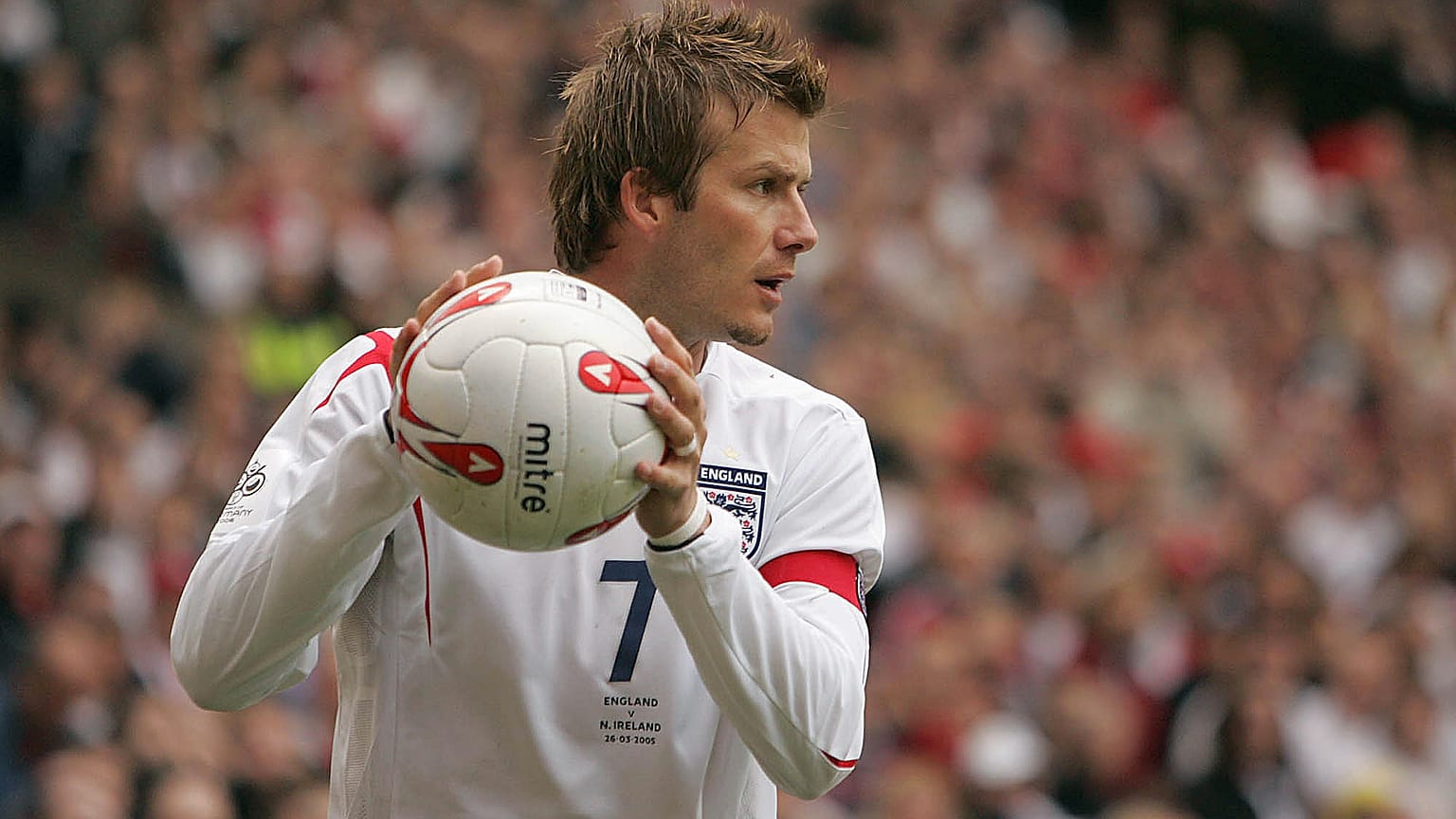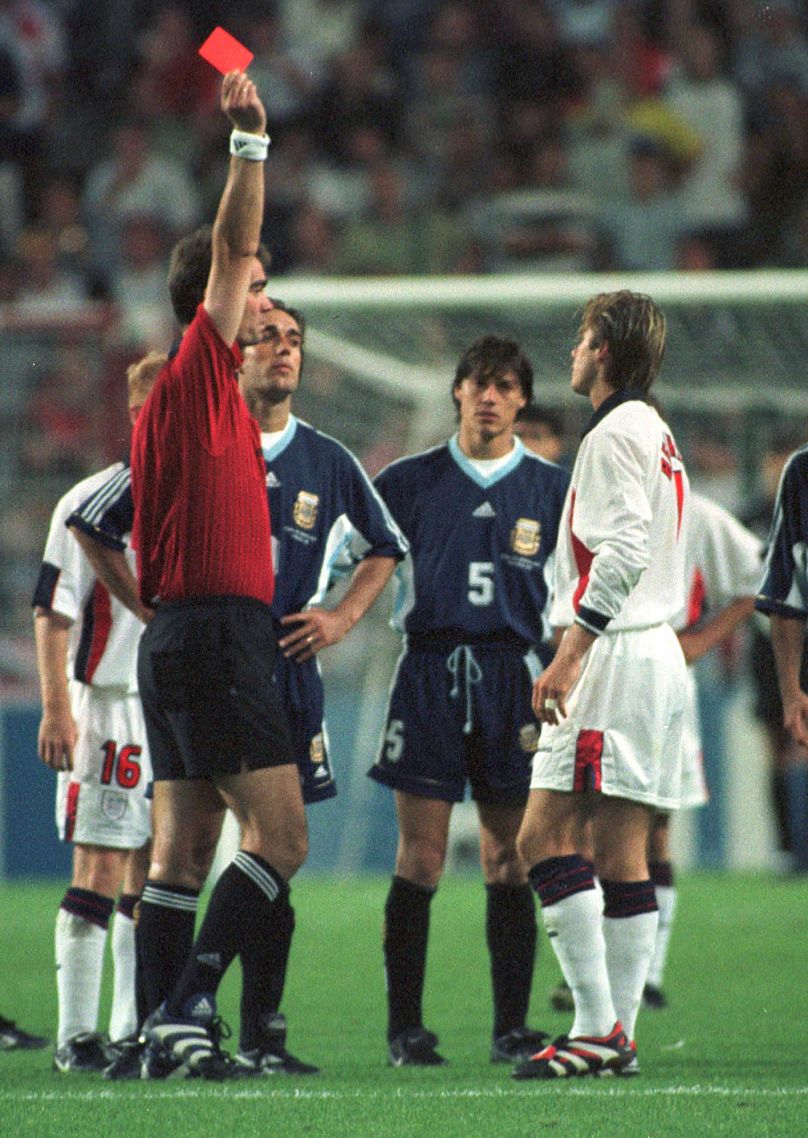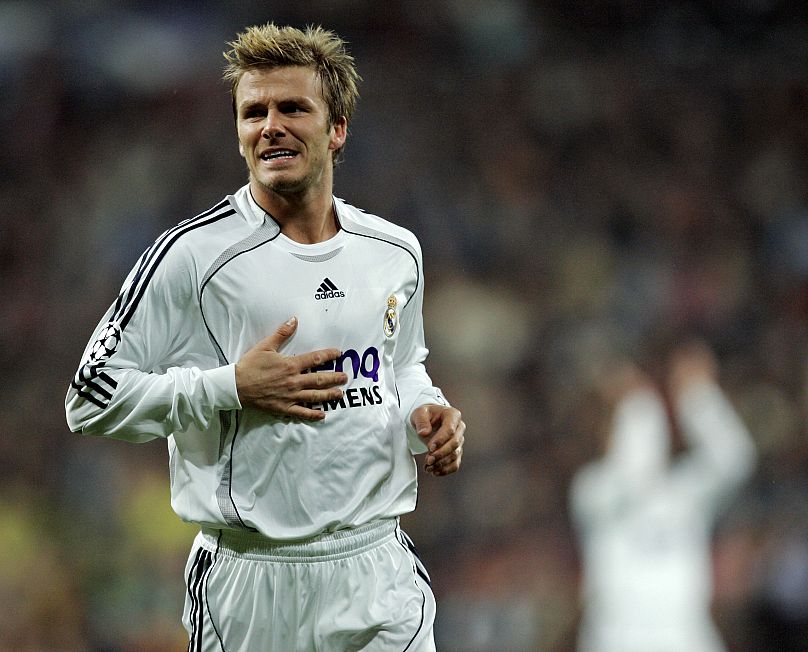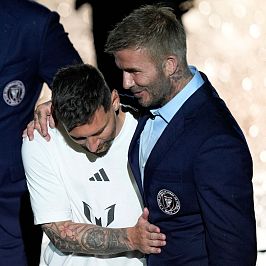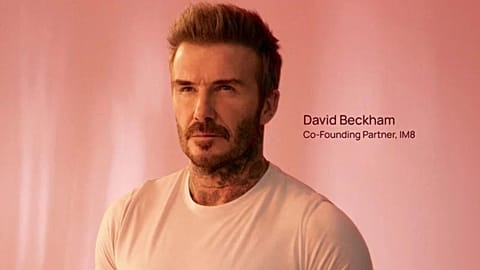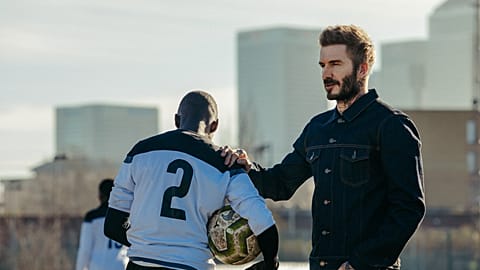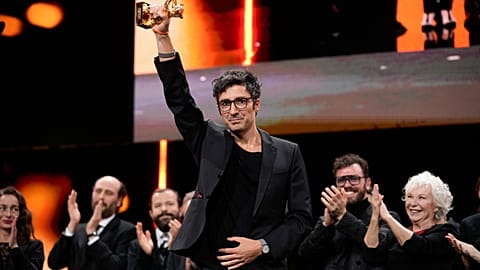David Beckham's new documentary series launches on Netflix on 4 October.
In a new four-part Netflix documentary series titled "Beckham," the former England football superstar explores his upbringing and his triumphs on and off the field.
 ADVERTISEMENT
ADVERTISEMENT
 ADVERTISEMENT
ADVERTISEMENT
However, as he discloses in an exclusive interview with the Associated Press, the most emotionally challenging aspect was confronting the painful memory of receiving a red card during England's 1998 World Cup match against Argentina in France.
“This whole process has been like an emotional rollercoaster,” Beckham told the AP. “I’ve never talked about these certain moments in my career and in my life."
“I hadn’t actually watched it and I hadn’t actually watched the interviews and what people said about me after,” he said, adding that it left him “shocked and emotional.”
What happened in the 1998 World Cup?
After being bundled to the ground, Beckham lashed out by petulantly kicking the back of Diego Simeone's leg. He received a straight red card for his response. England’s World Cup hopes were severely dented, the team eventually lost on penalties, and Beckham went from hero to villain.
"Beckham" lays bare the condemnation from both the British tabloids and football fans, with one "supporter" hanging an effigy of the player from a noose outside a London pub.
“I knew it was bad at the time, but going over that whole that whole thing was quite a tough one,” he told the AP.
In the show, Beckham's friend David Gardner recalls how the star was often accompanied to the bathroom for his safety when out in public.
Despite the full support of Manchester United fans and club manager Sir Alex Ferguson, Beckham said there wasn’t the same emphasis on the importance of mental heath there is today.
“Back then there wasn’t anyone turning round to me and saying, ‘Are you OK? Are you sure you’re OK? Let’s talk about it.’”
Even his own family struggled to understand. “25 years ago, if I’d have turned around to my dad and said that I don’t feel great, he would have said, ‘Boy, just get on with it’. So that’s how I grew up and that’s how I knew how to kind of handle a situation like that,” he said.
Becoming a cultural icon
The documentary also touches upon Beckham’s move from a player to cultural icon and entrepreneur. He was a trailblazer in the sport thanks to collaborations with brands including Adidas, Armani, and Breitling.
He knew early on that “Brand Beckham” would broaden and lengthen his career if he could achieve a good balance between success both on and off the pitch.
“I always made sure that whatever I was doing off the field never affected what I was doing on the field because that was what I loved and what was important to me.”
His business savvy culminated in ownership of his own soccer team, Inter Miami.
“I had the opportunity to play in different countries, move to America, obviously have my own franchise and my own team, become an owner,” he said.
“So then once I finished playing, I knew that the moment I finished playing, I could then jump into the business. But, we were working on that a long time before that.”
Looking back on the highs and lows of his career, it’s natural to wonder if Beckham has any regrets.
“Do I wish things hadn’t happened? Absolutely. Do I wish ‘98 hadn’t happened? Absolutely.”
“But it made me stronger as a person, as a player, as a human being, and as a father as a husband,” he said. “And if that hadn’t have happened, I maybe I wouldn’t have had the career that I had.”














